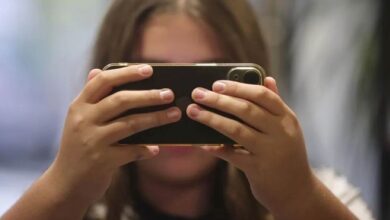The impact of TikTok on people’s attention
Like other social networks, the use of TikTok has harmed people's attention in their daily lives.

Photo: Pexels
LatinAmerican Post | Luis Hernández Liborio
Listen to this article
Leer en español: El impacto de TikTok en la atención de las personas
The health crisis gave a great boost to social networks as an entertainment center. Although they already had that role, the situation reinforced its extensive use. One of the fastest-growing was the social network of Chinese origin TikTok, however, its indiscriminate use points to a negative impact on people's attention.
It's getting harder to catch our attention
People spend more and more time watching multimedia content on different social networks: trending news, fashion, sports, music, culture, challenges, and entertainment, in general. Overexposure to content, especially entertainment, generates a gradual loss of interest. It is something similar to what happens when we have hundreds of channels on television and we cannot find anything interesting. It is difficult to pay attention to something specific, that is why the contents have become shorter and shorter. If you have paid attention to the reels, they have become one of the most successful products on social networks because they are short videos designed to capture attention for just an instant.
TikTok has capitalized on this trend well. The problem is that in daily life we cannot conduct ourselves in this way, changing what we do in just 5 seconds, because it would mean that attention is dispersed with an exaggerated frequency. According to The Science Times, those who spend more than 90 minutes a day on the application will be affected by this phenomenon. It seems like a long time, but surely on more than one occasion, you have noticed that "time flies" when you watch videos on TikTok or any other social network. The competition that exists on TikTok to capture views has multiplied the content exponentially, but at the same time, it makes it difficult for users to choose from the offer of said content.
Also read: How can you identify a Twitter bot?
How does this affect my daily life?
It seems somewhat innocent that social networks like TikTok "make" us more distracted. However, it is a phenomenon that will affect our daily lives in ways that we sometimes do not imagine. Although it is not something new, the loss of attention has intensified with social networks, the need for immediacy generates a more accelerated world that has an impact on people's mental health. The industry has adapted to it, for example in music, artists produce increasingly shorter and repetitive songs, as well as albums that contain fewer songs, some even only produce singles. If they produced longer songs and albums with many themes they would be doomed to fail, the public's attention has become difficult to capture. Another example is vlogs, which are getting shorter and shorter.
Television, cinema, and audiovisual media in general experience this phenomenon, but it is not exclusive to them. The industry in general lives faster: the smartphone, car, or the production of newer clothing are examples of them. A brand or content will not hold the attention of consumers for long, they will quickly get bored and wait for the next release in months and not years as in the past. With TikTok, you don't have to wait for anything, on the same day the trending topics can change. The same magazine points out that the duration of a hashtag went from 17.5 hours in 2013 to 11.9 hours in 2016. By 2022 the duration is sure to be less. Why watch long newscasts, movies, or series with many chapters if the entertainment is on the app? within reach of a move?
How do I improve my attention and concentration?
Of course, for many people, leaving social networks is not an option, nor does it have to be. There is such a wide variety of content on social networks that it would be unfair to judge all of what is produced as negative content. Even TikTok has been a kind of stress treatment for many people, for example during their time on public transport. Likewise, in emergencies such as the military intervention in Ukraine, people have shown their support through this network. So, just like in our real life, with food and activities, everything must have a limit. The recommendation is not to close your TikTok account but to reduce the time you spend on it and be critical of what you consume.
Whether as a consumer or as a producer of content on the network, the content must seek to be positive and, above all, responsible. The biggest consumers of this content are young. In The Science Times, Dr. David J. Puder, a psychiatrist at Loma Linda University in California, assures that most of the content on TikTok is positive, so its impact on mental health is also positive, so in the end, the problem is not content, but duration and exposure to them. Entering social networks must be balanced with correct sleeping habits, eating, physical activity, healthy coexistence in real life, and activities that stimulate creativity and concentration.




